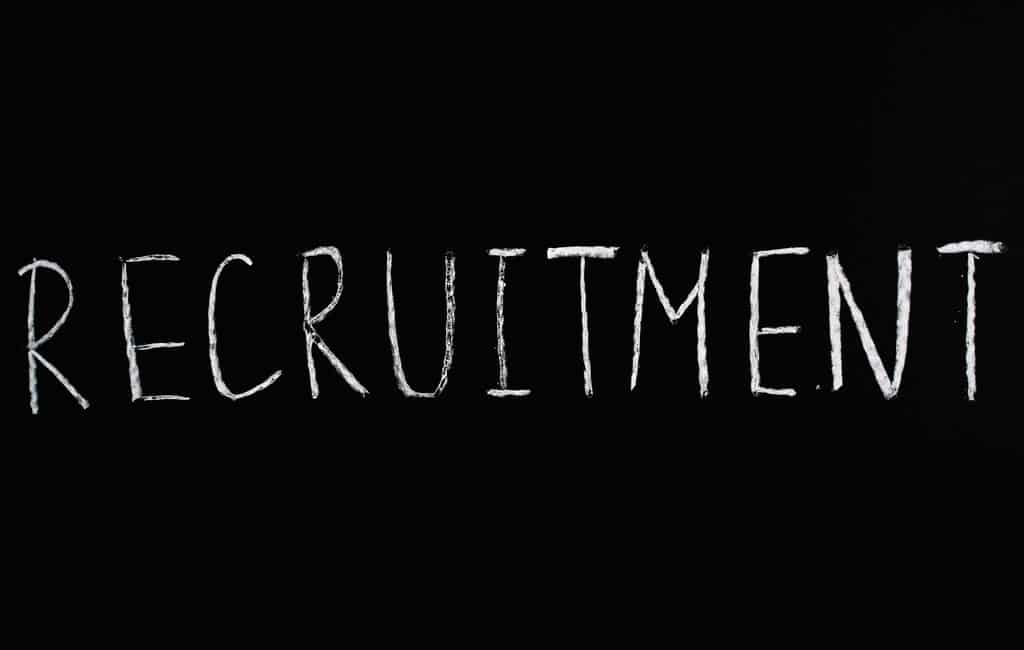Hiring Tips
Do you need ten tips for hiring an employee? Hiring the right employee is a challenging process. Hiring the wrong employee is expensive, costly to your work environment, and time-consuming. Hiring the right employee, on the other hand, pays you back in employee productivity, a successful employment relationship, and a positive impact on your total work environment.
Hiring the right employee enhances your work culture and pays you back a thousand times over in high employee morale, positive forward-thinking planning, and accomplishing challenging goals. It also ensures that you are making the most of the time and energy that your other employees invest in a relationship with the new employee—a costly and emotional process, indeed.
Hire for personality rather than skill — abilities can be learned, character cannot. Employ those who exhibit the traits you want, and then provide them the training they require to succeed.
Be patient– it is a virtue to be patient. Always take your time when employing new employees. Do not rush. You won’t regret waiting till the ideal applicant for the job applies.
Test Drive Them – While it’s simple to claim that you’re capable of doing something, action is the key. Always confirm that the individual you hire is able to finish the task for which they were hired. Short-term apprenticeships and internships are excellent ways to investigate this.
Expand Your Talent Pool – Even if you aren’t hiring, you still need to expand your pool of potential employees. Then you may get in touch with the people you already have relationships with when you need a new person to join the team.
Seek Diversity – A diverse staff encourages creativity, opens up new markets, and provides fresh viewpoints on how to run your company.

What do you look for in an employee?
Businesses may have to spend time and money on turnover and employing new personnel. Businesses need to make wise hiring selections in order to avoid a loss when it comes to the training of new workers, in addition to working to retain as many hardworking employees as possible. When hiring new staff, businesses have particular criteria that are frequently revealed during the initial interview.
Here are ten standout traits to look for in screening new hires:
1. Long-Term Possibilities
Businesses do not want to hire someone who does not have the potential to be a long-term worker because turnover can be expensive given the expense in training new personnel. When screening candidates for interviews, recruiters should look for qualities of perseverance and commitment. For instance, a candidate with many certifications or a graduate degree (such an online MBA) might demonstrate a drive for seeking prospects for long-term advancement.
2. Possibility of Getting Results
Businesses do not want to hire someone who does not have the potential to be a long-term worker because turnover can be expensive given the expense in training new personnel. When screening candidates for interviews, recruiters should look for qualities of perseverance and commitment. For instance, a candidate with many certifications or a graduate degree (such an online MBA) might demonstrate a drive for seeking prospects for long-term advancement.
3. Passion and Enthusiasm
Look for applicants who are enthused and deeply committed to their work. The interview should highlight their accomplishments. People who enjoy their jobs tend to work for their employers longer than those who only do it for the money. Enthusiasm is a terrific quality for a new employee to have; outgoing, enthusiastic workers are frequently beneficial to a company because they probably have experience with operations management, enterprise resource planning, and healthcare management.
4. Implementing Skills
To better demonstrate their skill set, some recruiting managers may require prospective new workers to do a task or work on a project. An employer is looking for a candidate that is self-motivated, eager to contribute actively to team initiatives, and prepared to go above and beyond to help the firm succeed. Candidates who maintain their composure while demonstrating their problem-solving abilities are frequently better equipped to handle the strain and responsibilities that may be associated with the position.
5. Adapting to the Workplace
It’s crucial to evaluate a candidate’s “fit” in two different ways during the interview process. Consider first whether they are a good fit for the job based on their knowledge, skill level, and general ability to carry out the necessary tasks. Secondly, consider how they would personally “fit” into the organizational culture to gauge their fit for the corporation as a whole. Employees that feel successful in their jobs and like they belong at the company tend to stick around for longer.
6. Team Member
Employees frequently have to collaborate on a project with other employees. Even if a job necessitates completing the majority of activities by yourself, there will be moments when employees must collaborate. Potential employees are frequently questioned by recruiters and hiring managers regarding their teamwork skills and preferred work environments. Some businesses may even conduct a group interview with candidates to assess how well they get along with other staff members.
7. Ambition
Employers are looking for individuals with ambition who will go above and beyond the call of duty. Ambitious individuals strive to perform at the highest level possible in their roles and frequently consider how to increase productivity, making it an excellent attribute for an online HR graduate to possess. When the opportunity occurs, an employee who possesses these qualities is certain to stand a better chance of being given consideration for roles that are more challenging.
8. Giving Others Credit
During the interview, hiring supervisors will also be looking for honesty and integrity. When given a compliment, it is admirable for applicants to give credit to coworkers who assisted them in succeeding. The group and individual morale will be boosted by showing appreciation for other employees, which creates and maintains a trustworthy workplace. Hiring managers should search for self-assured, assured workers who take ownership of their work while also appreciating the contributions of the entire team.
9. Responsiveness
A candidate who thoughtfully reacts when being addressed, properly welcomes others, and says “thank you” and “you’re welcome” will stand out from others who lack appropriate social interaction skills. Being attentively responsive demonstrates respect and courtesy towards the hiring supervisors. It is also a significant predictor of how they will communicate with coworkers and clients after accepting the role. Respecting others will improve a company’s performance in every area, especially when working with customers directly.

How to Make Retention a Priority in Your Company
Finding a strategy to keep talent on staff comes next when a hiring manager chooses a candidate based on the pertinent qualities listed above. Human resource managers are aware that making the wrong hiring decision may be upsetting and discouraging for both the employer and the new hire. With so much on the line, human resource staff members must possess comprehensive knowledge of the techniques and abilities that make finding and keeping winners a norm rather than an accident for their company.
Continuing the Best
Keeping talented individuals invested, motivated, and devoted to the business becomes a challenge once they have been hired. If truly exceptional talent has been hired, there is a good likelihood that rivals may try to court them. Human resources can play a key part in keeping the top applicants from leaving from the very beginning of their job.
Help the candidates discover their area of expertise: A corporation needs to offer more than just money to retain its top talent; it also needs to give them a sense of purpose. Talented individuals desire a sense of purpose in their job, and if they don’t have a connection or passion for it, their dedication to the organization may suffer.
Reaching out frequently to top talent to inquire about what they enjoy or dislike about their work, what they feel enthusiastic about, and what they want to do more of is one tactic that human resources may use to keep the professional winners. With such knowledge, human resources can help supervisors have a conversation and include more of their passion projects in the work. It is unreasonable to imply that employees can decide on every aspect of their job, but it is realistic and useful for employee retention to express concern for their fulfillment at work.
Give Regular Input: Many businesses believe that winning talent doesn’t require or desire regular feedback. Instead, they offer yearly performance reviews that are tied directly to pay. Top talent, however, is interested in both learning and improving, and they may rapidly lose interest if their supervisors don’t give them constructive and encouraging feedback. So that there is a culture of development and investment in the best talent, competent human resource personnel can urge managers to give more frequent feedback to their teams that is unrelated to salary.
Conclusion
Even if these tactics work, the greatest way for a human resources professional to find and keep winners is to teach them on the latest procedures and fashions.
